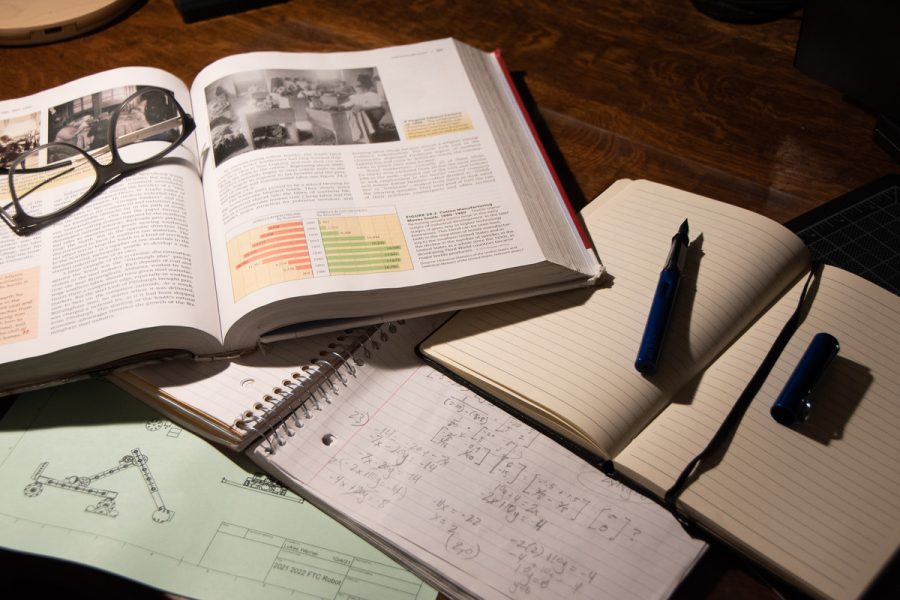Daniel Hartson, a senior at La Salle, is a member of the boys varsity soccer team, an employee at Krispy Kreme, and a part of the Metropolitan Youth Symphony.
His soccer practices are five days a week, and ranges from two to three hours long. That means that soccer alone takes up 10 to 15 hours of Hartson’s week.
He typically works shifts at Krispy Kreme two days out of the week, and works about eight hours on each of those days. On top of all that, the Metropolitan Youth Symphony takes up about three hours each Saturday.
Hartson’s schedule is filled with rigorous courses including Multi-variable Vector Calculus, AP Chemistry, AP Spanish 5, and AP English 4. His most challenging course has to be “AP Chemistry, just because of the technical knowledge that it requires and the amount of studying I have to do,” Hartson said.
He’s currently not taking any electives, however he is “still looking for a teacher’s assistant opportunity as I have an open slot for both this semester and next semester,” he said.
As for homework, on a regular weekday “I spend two, maybe two and a half hours depending on if I have a test coming up that I have to study for, or if I have any projects to do,” he said.
On the weekend, “it’s split up across three days, maybe like half an hour, an hour not normally too much,” he said.
To accommodate his busy schedule, Hartson tries to find every spare moment he can to fit in work time. In order for Hartson to find time to do homework, he finds himself “working on homework sort of in the cracks, like late at night or early in the morning, or just whenever I actually have free time,” he said. “It means I sort of have to compromise in that way, and do it in short increments rather than all at once.”
Juggling school, soccer, symphony, and work, Hartson said that being overwhelmed is something that actually happens “all the time, every day,” he said.
“There’s also times where I’ll find that one activity or commitment actually encroaches on another,” he said. “One time I had to work an eight hour shift at Krispy Kreme and I had a game after. And I think that affected, you know, my performance in the game as well.”
When things like this happen, “I just push through it and plan better in those times, try to eat better, you know, get more sleep, so that doesn’t happen,” he said.
For underclassmen, Hartson suggests getting an early start “even if you don’t get it done immediately after it’s assigned, just try not to procrastinate,” he said. “Also, have a good idea of what’s due without even having to look at it, just so you know where you’re at each day.”
As for managing time, Hartson suggests that students make sure they’re thinking about “every assignment, [and] you don’t let anything slip through, because once one thing slips through that’s when normally, it gets a lot more challenging,” he said. “You have this snowball effect.”






![Junior Catie Tassinari suggests that students “have an open communication with your teachers, [and] utilize your classmates, " she said. "Be willing to ask questions, because it really only benefits you and your understanding.”](https://lasallefalconer.com/wp-content/uploads/2021/10/DSC0746-900x600.jpg)



![On the average weekday, junior Quentin Strange spends about “an hour and a half to two hours on homework,” whereas on the weekends, it’s “more towards three to four hours [in] total,” he said.](https://lasallefalconer.com/wp-content/uploads/2021/10/DSC0743-900x600.jpeg)
![In order to manage time between schoolwork and sports well, “use as much time as you can [before practice] so it’s not overwhelming when you get to it at the end of the night,” senior Abbie Reddick said.](https://lasallefalconer.com/wp-content/uploads/2021/10/DSC0756-1-900x600.jpeg)